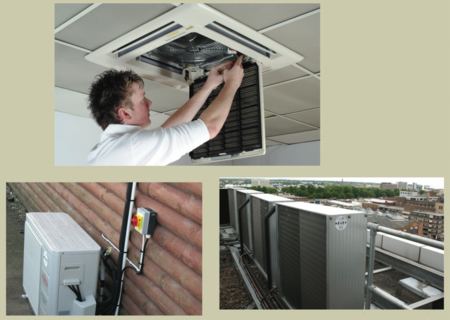Enjoying the many benefits of planned maintenance
A preventive maintenance agreement for air-conditioning systems ensures a system will not fail just when it is most needed and more than pays for itself through higher efficiency and lower costs. Jody Meek argues the case.
In the halcyon days of yesteryear, there were always schools of thought that said, ‘If it ain’t broke, then don’t fix it.’ Today’s non-stop 24/7 world has changed all that, nowhere more than in the air-conditioned environment. A simple failure of a fan motor, a condensate pump or relay can cause data centres to shut down, offices to become uncomfortable and critical operations abandoned.
All mechanical equipment is designed to operate within certain limits.
If not properly maintained, the equipment will exceed the design limitations, resulting in equipment failure. Preventive maintenance ensures your system works at peak efficiency — which reduces energy bills, extends the life of the system and averts early equipment failure. Making even small adjustments to systems can significantly improve the working environment and at the same time save money.
Considerable savings in energy can also be made with correct sizing and maintenance of commercial air conditioning systems.
In many businesses, especially office environments, in which the drive for air conditioning is largely comfort led, there is a tendency to leave servicing of equipment until the first warm days of early Summer. The cliché ‘out of sight, out of mind’ is often the reason for neglected maintenance on an air conditioning system. This often leads to emergency repairs having to be rushed through at a premium cost, which could have been avoided if a preventive maintenance agreement (PMA) was in place. A PMA is a simple, all-inclusive, 24/7-maintenance contract, such as the Coolcare24 package offered by Celtaire.
Typical problems that arise from poor or irregular servicing include the following.
• Dust in condensate trays forming a grey sludge, blocking condensate drains and leading to unpleasant leaks.
• Dust and other particulates circulating around the room. These can carry airborne diseases that can lead to staff feeling unwell.
• Chilled water systems can be fertile breeding grounds for Legionnaires’ Disease.
• Warranty provisions are rendered null and void by manufacturers if correct maintenance has not been carried out.
What can you expect from your PMA?

Getting your air conditioning checked is as important as changing the oil in your car. During these inspections, proper operation of the equipment is checked and verified. Every part of the air-conditioning system is tested, including the following.
• The system’s functions, controls and adjusting the operating sequence where appropriate.
• Inspection of electrical components and connections — repairing, replacing and tightening as necessary.
• Ensure proper airflow and clean dirty air filters.
• Carry out an inspection of pumps, lubricate and check flow rates.
• Clean and lubricate motors.
• Examine belts, adjust and align.
• Clean inside coil, condensate tray and ducting to prevent obstructions.
• Clean outside coil and clean fins.
• Check refrigerant levels.
A well maintained modern air-conditioning system not only uses energy much more efficiently but also reduces carbon emissions. Air-conditioning systems use a lot of energy — up to half of a building's consumption in some cases. That is why the Energy Performance of Buildings Directive (EPBD) specifically targets air-conditioning systems. As of January 2009, air-conditioning equipment, rated between 12 and 250 kW, must have been inspected by January 2011 by an energy assessor. Air-conditioning systems of more than 12 kW will then have to re-inspected at least every five years in accordance with the latest Energy Performance of Building Regulations.
The aims of the inspection are to:
• assess the efficiency and appropriateness of the systems in relation to the cooling requirements of the building;
• advise building users/managers on possible improvements to, or replacement of, air conditioning systems — and alternative solutions.
To ensure systems meet guidelines they therefore need to be maintained carefully and managed so they do not consume too much energy. This makes good business sense, as energy consumption can increase by 30% if regular maintenance is not carried out.
PMAs more than pay for themselves through higher efficiency, lower utility bills, a longer life and the peace of mind — knowing that system failure is far less likely and if there is a problem during the heat of the summer help is quickly on hand to rectify the problem.
Contracts can be tailored to suit a customer’s requirements — whether they are driven by lowest cost, fixed budgets or maximum flexibility. What is most important, however, is that there is a safe, effective and planned maintenance programme in place to prevent downtime, equipment failure and health concerns.
Jody Meek is a director with Celtaire








